#Bernie Allen
Text
REST IN PEACE, HENRY RONO
We are all born onto this spinning orb, traveling at 1000 mph at the equator, with the pack of previously born moving through on the inside already up to speed. There are no head starts, my friends; we’re all coming from behind, in one fashion or another. So the only thing to do is to pick yourself up, slime yourself off, and get on with the chase.
Perhaps nobody got on with the chase any more…
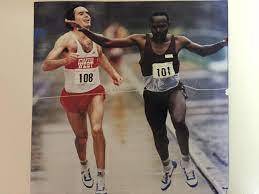
View On WordPress
#Alberto Salazar#Bernie Allen#Brian Fullem#Dick Beardsley#Don Paul#Douglas Wakiihuri#Duel In the Sun#Eliud Kipchoge#Gary Moore#Henry Rono#Ibrahim Hussein#Joel Cheruiot#John Chaplin#Jos Hermens#Kelvin Kiptum#Kipchoge Keino#KPNW Radio#Merrill Rubin#Miruts Yifter#Olympic boycotts#Paul Tergat#running#Samson Kimombwa#Secretariat#Stephen J. Gould#Ted Banks#Tom Sturak#Tracy Sundlun#UTEP
0 notes
Text
There are a lot of white haired anime boys I care about.
Allen walker. Danny phantom. Bernie sanders
#dannys my fav tbh. its hard to compete aginst schrondgners boy#(joke)#allen walker#bernie sanders#meme#funny#danny phantom#i think the fandoms will ejoy this so im tagging them#except maybe d gray man (allen). they get so little content anyway#hows bernies twitch doing btw#not actually political#im doing this for the vine
18 notes
·
View notes
Video
youtube
Goodbye Yellow Brick Road (Elton John cover) by Yola, live on Austin City Limits
#music#live#live music#yola#elton john#yolanda quartey#bernie taupin#jerry bernhardt#cover#edward taylor zachry#dominic billett#video#live video#dan martaus#walter olden#david hough#allen parker#austin city limits#sharon cullen#terry lickona#live session#yolanda claire quartey#yola carter
31 notes
·
View notes
Text
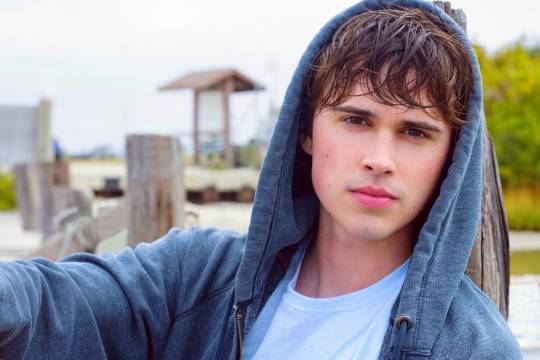
Logan Allen
17 notes
·
View notes
Text
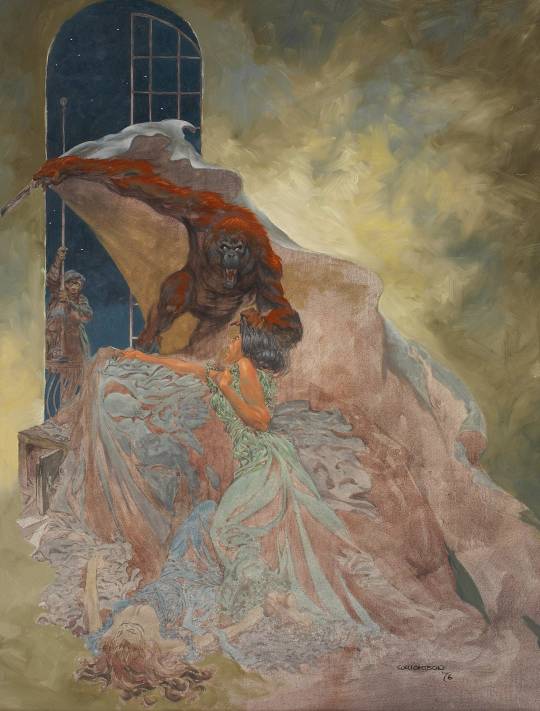
Murders in the Rue Morgue illustration by Bernie Wrightson
21 notes
·
View notes
Text
"Backfire" (1987) - Gilbert Cates
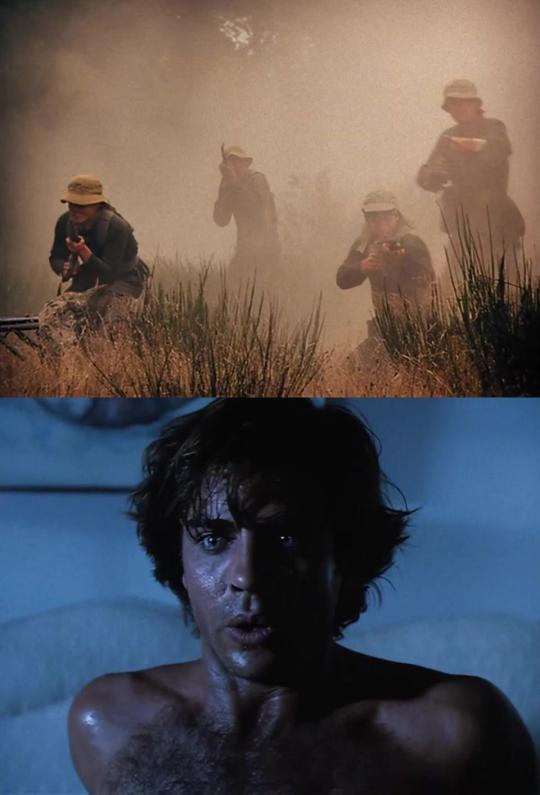
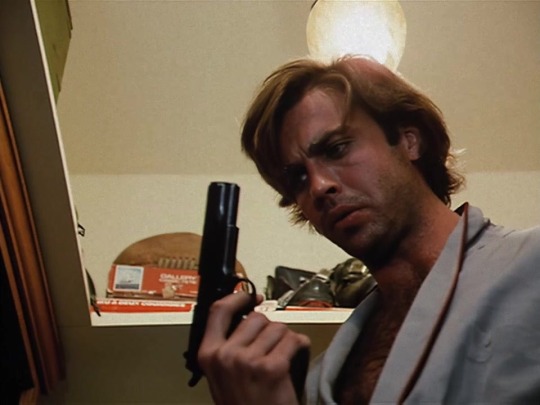
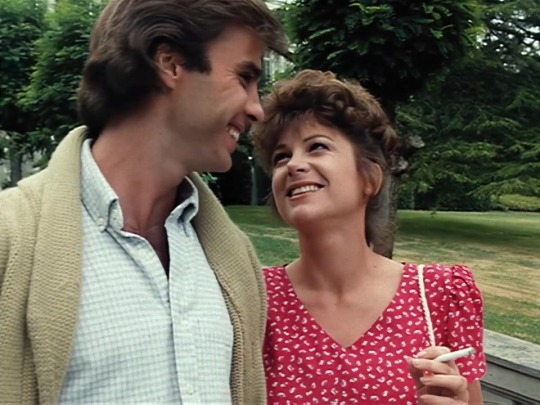
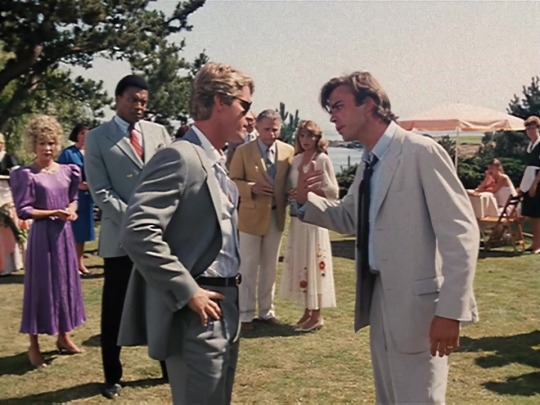
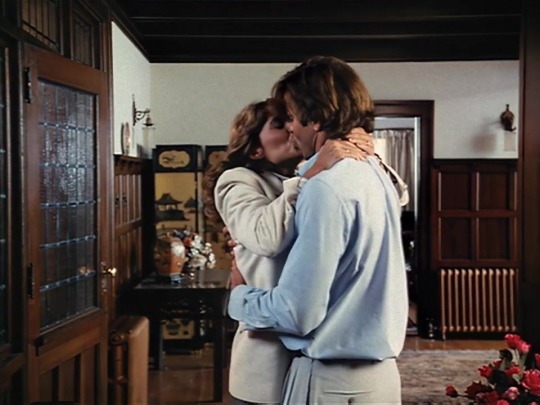
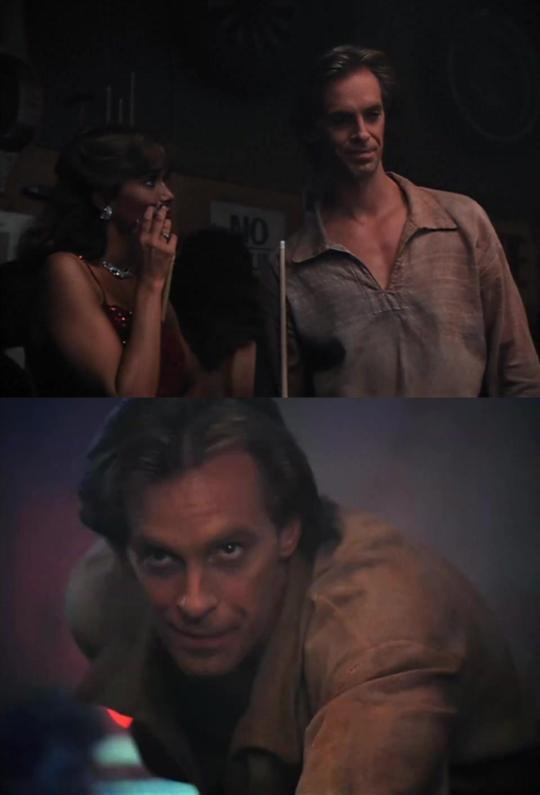
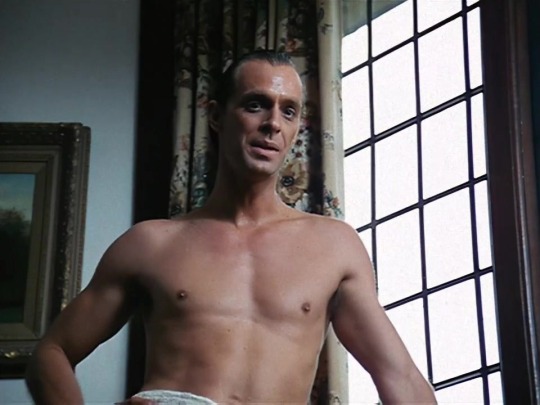
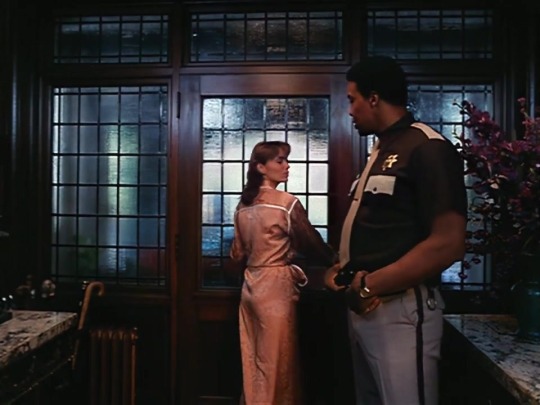


Films I've watched in 2023 (108/119)
#films watched in 2023#Backfire#Jeff Fahey#Virginia Capers#Dean Paul Martin#Karen Allen#Keith Carradine#Bernie Casey#Gilbert Cates#thriller#1980s film#1980s cinema#motionpicturelover's screencaps
2 notes
·
View notes
Photo
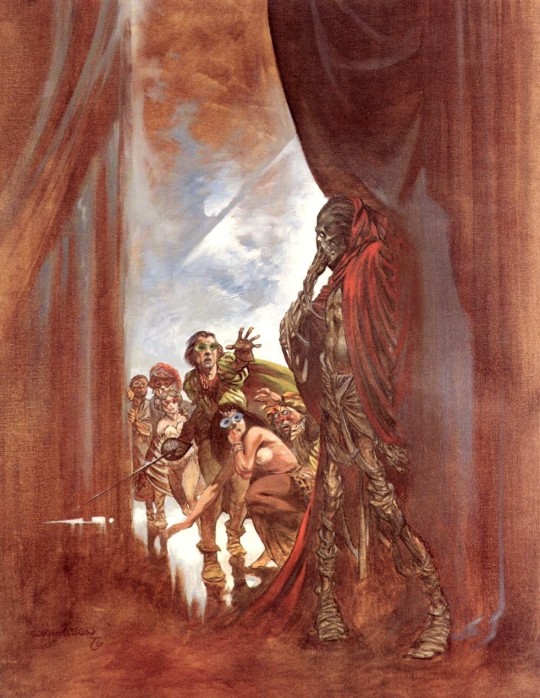
The Masque of the Red Death, from The Edgar Allen Poe Portfolio by Bernie Wrightson (1976)
#bernie wrightson#art#illustration#1970s#1970s art#vintage art#vintage illustration#vintage#american art#american artist#american illustrators#edgar allan poe#horror#horror art#the masque of the red death#death#classic art
337 notes
·
View notes
Text
You might think that Superman would be a Republican since he grew up on a Kansas farm but he’s actually pretty liberal, albeit in the stuffy Midwestern way you sometimes see where he’s uncomfortable with but accepting of social changes. He can talk your ear off about farm subsidies. Knows who Tom Vilsack is and hates him.
The Atom is a New England liberal of the most insufferable variety. You can really tell he thinks he’s better than you and makes a huge deal about the fact that he has “friends on all sides of the aisle.”
The Flashes are a mixed bag. Canonically, Barry Allen is a cop and thinks Green Arrow talks too much about police brutality, but otherwise he’s a moderate Republican. Jay Garrick is an old school popular fronter who still has his CPUSA membership card and was all in for Henry Wallace in ‘48. Wally West voted for Bernie twice. Bart Allen subscribes to an inscrutable future ideology called “Crashism” which advocates for making it “party time all the time.”
Most of the Titans were big on Bernie now that I think about it. Beast Boy’s a Green Party voter though, I mean come on.
Hawkman is a fascist. Why is he allowed on the Justice League. Atom why do you hang out with this guy.
65 notes
·
View notes
Text

Masque of the Red Death, Edgar Allen Poe Portfolio (1976) - Bernie Wrightson
39 notes
·
View notes
Text


The Glory 22/08/2023 © All Rights Reserved by Jamil Hussain
#lovely#photography#poetic#beautiful#beauty#photos#photooftheday#lychee fruit#fruits#exotic#sweetest#sweet#gorgeous#so gorgeous#colourful#pink#soft pink#rose pink#heavenly#divine#peace#peace and love#summer#taste#so beautiful#magical#blissful#simplicity#naturelovers#nature
3 notes
·
View notes
Text
This day in history

Tomorrow (June 3) at 1:30PM, I’m in Edinburgh for the Cymera Festival on a panel with Nina Allen and Ian McDonald.
Monday (June 5) at 7:15PM, I’m in London at the British Library with my novel Red Team Blues, hosted by Baroness Martha Lane Fox.
On Tuesday (June 6), I’m on a Rightscon panel about interoperability.
On Wednesday (June 7), I’m keynoting the Re:publica conference in Berlin.
On Thursday (June 8) at 8PM, I’m at Otherland Books in Berlin.

#15yrsago John McCain vows to continue Bush’s illegal warrantless wiretapping program https://www.wired.com/2008/06/mccain-id-spy-o/
#10yrsago OccupyGezi: the People’s Bulldozer https://occupygezipics.tumblr.com/post/52008000563/peoples-bulldozer-chases-police-toma-vehicles-in
#10yrsago Meet austerity’s millionaires https://www.theguardian.com/politics/2013/jun/01/top-earners-millionaires-inequality-city-finance
#10yrsago Gas-mask dervish: #occupygezi https://twitter.com/joeman42/status/341492885650292738
#5yrsago Private equity bosses took $200m out of Toys R Us and crashed the company, lifetime employees got $0 in severance https://www.washingtonpost.com/news/business/wp/2018/06/01/how-can-they-walk-away-with-millions-and-leave-workers-with-zero-toys-r-us-workers-say-they-deserve-severance/
#5yrsago Bernie Sanders rallies Disneyland employees for a $15 minimum wage https://thehill.com/homenews/senate/390430-bernie-sanders-disney-needs-moral-defense-for-having-hungry-workers-while/
#5yrsago UK consumer review magazine Which?: your smart home is spying on you, from your TV to your toothbrush https://web.archive.org/web/20180603221154/https://www.which.co.uk/news/2018/06/which-investigation-reveals-staggering-level-of-smart-home-surveillance/
#5yrsago America is the world’s first poor rich country https://eand.co/why-america-is-the-worlds-first-poor-rich-country-17f5a80e444a
#5yrsago Zuckerberg blows off Facebook shareholders’ demand for transparency, says he’s committed to transparency https://www.mercurynews.com/2018/06/01/corporate-dictatorship-facebook-shareholders-get-their-turn-to-grill-mark-zuckerberg/
#5yrsago Illinois votes to eliminate inmates’ doctor visit co-pays, equivalent to one month’s wages https://www.themarshallproject.org/2018/05/30/the-580-co-pay

Catch me on tour with Red Team Blues in Edinburgh, London, and Berlin!
3 notes
·
View notes
Text
Content
Aesthetics | Edits | Gifs | Multiships | Fics | Headcanons | Others
Marvel ⏤ Steve Rogers Defense Squad + Sam Wilson Defense Squad + Sharon Carter Defense Squad
DC ⏤ Core Four (Tim Drake, Conner Kent, Bart Allen & Cassie Sandsmark) Defense Squad + Batfamily & Superfamily
Teen Wolf ⏤ Stiles Stilinski Defense Squad
Supernatural ⏤ Team Freewill–centric
Star Wars ⏤ Luke Skywalker Defense Squad + Grogu Defense Squad + Pro-Jedi
One Piece ⏤ Mugiwara no Ichimi–centric + ASUL Siblings (ASL Brothers + Uta) + Shanks being Luffy's (and Uta's) dad
Other fandoms ⏤ Pokémon, Inazuma Eleven (Break Trio–centric), Naruto (mainly: Hyūga Hinata–centric or Team 8–centric), Fairy Tail, Percy Jackson, Harry Potter, Shadowhunters, Good Omens…
Ships that are most likely to appear ⏤
All fandoms mentioned above: Nakamaship | Platonic Relationships
Marvel: Samsteve | Sam Wilson 𝘅 Steve Rogers, Staron | Steve Rogers 𝘅 Sharon Carter, Stony | Steve Rogers 𝘅 Tony Stark (only in Earth-616, Earth-20051, Earth-12041, Earth-8096, Earth-TRN814 & Earth-TRN562), Stucky | Steve Rogers 𝘅 Bucky Barnes (only in Earth-199999), Steve Rogers 𝘅 Bernie Rosenthal, Steve Rogers 𝘅 George Batroc (only in Earth-616), Steve Rogers 𝘅 Namor, Steve Rogers 𝘅 Namor 𝘅 Jim Hammond, Namor 𝘅 Jim Hammond, Reed Richards 𝘅 Sue Storm…
DC: Timkon | Tim Drake 𝘅 Conner Kent, Timbart | Tim Drake 𝘅 Bart Allen, Timkonbart | Tim Drake 𝘅 Conner Kent 𝘅 Bart Allen, Timkonbartcassie | Bart Allen 𝘅 Tim Drake 𝘅 Conner Kent 𝘅 Cassie Sandsmark, Dickbabs | Dick Grayson 𝘅 Barbara Gordon…
→Arrowverse: Supercorp | Kara Danvers 𝘅 Lena Luthor, Superflash | Kara Danvers 𝘅 Barry Allen, Superarrow | Kara Danvers 𝘅 Oliver Queen…
One Piece: ZoLu | Roronoa Zoro 𝘅 Monkey D. Luffy, LawLu | Trafalgar D. Water Law 𝘅 Monkey D. Luffy, SanLu | Sanji 𝘅 Monkey D. Luffy, NamiVivi | Nami 𝘅 Nefertari (D.) Vivi, UsoKaya | Usopp 𝘅 Kaya, Frobin | Frank 𝘅 Nico Robin, Sako | Sabo 𝘅 Koala, Mishanks | Dracule Mihawk 𝘅 Shanks, Akagami no Shanks 𝘅 Makino, Nefertari (D.) Vivi 𝘅 Monkey D. Luffy…
Teen Wolf: Sterek | Stiles Stilinski 𝘅 Derek Hale, Stora | Stiles Stilinski 𝘅 Cora Hale, Stackson | Stiles Stilinski 𝘅 Jackson Whittemore, Stanny | Stiles Stilinski 𝘅 Danny Mahealani, Dackson | Jackson Whittemore 𝘅 Danny Mahealani, Berica | Vernon Boyd 𝘅 Erica Reyes…
Supernatural: Destiel | Dean Winchester 𝘅 Castiel, Drowley | Dean Winchester 𝘅 Crowley, Denny | Dean Winchester 𝘅 Benny Lafitte, Saileen | Sam Winchester 𝘅 Eileen Leahy, Samwena | Sam Winchester 𝘅 Rowena Macleod, Sabriel | Sam Winchester 𝘅 Gabriel…
Stars Wars: Dinluke | Din Djarin 𝘅 Luke Skywalker, Mara Jade 𝘅 Luke Skywalker, Bobaluke | Boba Fett x Luke Skywalker, Dinbobaluke | Din Djarin x Boba Fett 𝘅 Luke Skywalker, Hanleia | Han Solo 𝘅 Leia Organa…
Percy Jackson: Percabeth | Percy Jackson 𝘅 Annabeth Chase, Solangelo | Will Solace 𝘅 Nico di Angelo, Frazel | Frank Zhang 𝘅 Hazel Levesque, Percico | Percy Jackson 𝘅 Nico di Angelo, Jercy | Jason Grace 𝘅 Percy Jackson, Solackson | Will Solace 𝘅 Percy Jackson…
Harry Potter: Hinny | Harry Potter 𝘅 Ginny Weasley, Romione | Ron Weasley 𝘅 Hermione Granger, Drarry | Draco Malfoy 𝘅 Harry Potter, Linny | Luna Lovegood 𝘅 Ginny Weasley, Nuna | Neville Longbottom 𝘅 Luna Lovegood…
AU: Earth–129916 | Cast
Earth–129916 is a universe that I have been writing for a few months for a series of stories that I will publish in AO3. The stories will be published first in my native language (Spanish); later, I will translate them into English.
This universe mixes concepts from comics, movies and series. Above all, from the following canonical universes:
Earth–616
Earth–20051 (Marvel Adventures Comics)
Earth–199999 (MCU)
Earth–12041 (Avengers Assemble)
You can see all my posts from this universe here.
2 notes
·
View notes
Photo
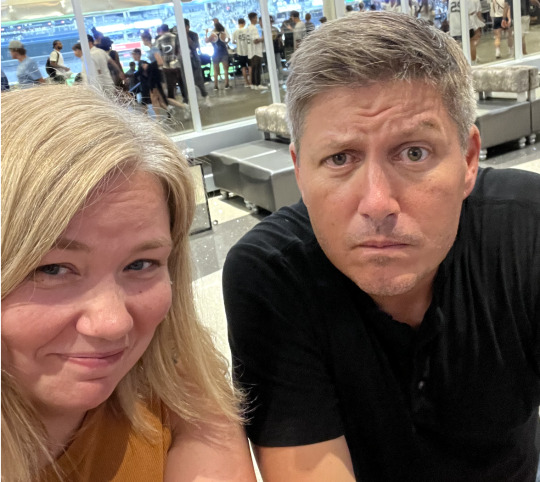

Go back to where you used to live, see old friends, that’s the point, folks.
Here are this week’s stories:
MONDAY
Fans Aren’t Angry Enough About DeShaun Watson (New York)
Rules for Empowered, Sane Fandom (Medium)
TUESDAY
Stop Comparing DeShaun Watson’s Punishment to Tom Brady’s (NBC News)
Untitled Medium Piece (Medium)
Trade Deadline Wrapup (MLB.com)
Juan Soto Reaction (MLB.com)
WEDNESDAY
John Wick Movies Without John Wick, Ranked (Vulture)
The Thirty: Where Each Team Stands Post-Deadline (MLB.com)
FRIDAY
Predator Movies, Ranked (Vulture)
Your Friday Five (Medium)
PODCASTS
Grierson & Leitch (subscribe in iTunes)
We discussed “DC League of Super-Pets,” “Resurrection,” and “Sharp Stick.”
Seeing Red (subscribe in iTunes)
Bernie Miklasz and I tried to figure out the deadline.
Waitin’ Since Last Saturday (subscribe in iTunes)
No show this week, back weekly next week.
Whew, busy one. The kids are back to school, time to get back down to business. Have a good weekend, and remember: How far would we go to protect our happiness and reputation? How selfish would we be? Is our comfort worth more than another person's life? Allen does not evade this question, and his answer seems to be, yes, for some people, it would be. Anyone who reads the crime reports in the daily papers would be hard put to disagree with him.
2 notes
·
View notes
Text
Lancelot Link, Secret Chimp (Get Smart! gone ape-shit)
[All images are owned by Sandler-Burns-Marmer Productions. Please don’t sue me or do…whatever you did to make those chimps “talk”]
youtube
[Thanks to mitzmandave]
Now, I’m not saying Lancelot Link, Secret Chimp owes its existence to Get Smart!. However, the show premiered on ABC (the network that aired Get Smart!’s final season) the year after Get Smart! was cancelled. Additionally, two of the show’s creators were writers on Get Smart!
But enough speculation and conspiracy theory, on with the review!
Lancelot Link, Secret Chimp was a 1970 Saturday morning comedy TV show modeled after spy thrillers, but the characters were all chimpanzees in costumes. According to lore, the chimps walked around on the sets gibbering away while the actors on-set (with only a vague screenplay to let them know what was supposed to be happening) ad-libbed the lines to (somewhat) coincide with the chimps’ lip movements.
The voice cast consisted of three actors:
Dayton Allen, who did a number of cartoon voices but was best known as a cast member of The Steve Allen Show in the 50s, voiced the title character as well as half of the male characters.
Bernie Kopell, who was fresh off from his stint as Siegfried in Get Smart! (hmmm…) voiced the main villain as well as the other half of the male characters.
Joan Gerber, who was a voice actress (one of which was Freddie the Flute in H.R. Puffenstuf) voiced all of the female characters.
The stories revolved around two factions:
The first is the heroic Agency to Prevent Evil (A.P.E.)
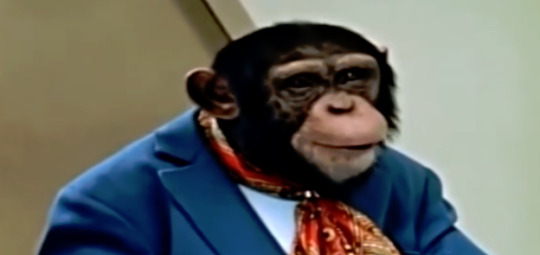
A.P.E.’s top agent is Lancelot Link (who sounds a bit like Humphrey Bogart) who, when not battling evil, works undercover as…

…the lead singer in a psychedelic rock band known as the Evolution Revolution (hey, if Austin Powers can moonlight as a world-renowned fashion photographer…)

Lance’s partner is Mata Hairi (an obvious parody of the notorious spy Mata Hari)
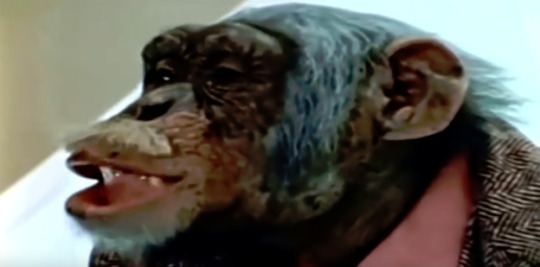
The head of A.P.E. is Commander Darwin (the joke here should be obvious)
On the other side, we have the Criminal Headquarters for Underworld Master Plan (CHUMP)

…led by the evil Baron von Butcher (who sounded exactly like Siegfried from Get Smart!, mainly due to his being voiced by Kopell)
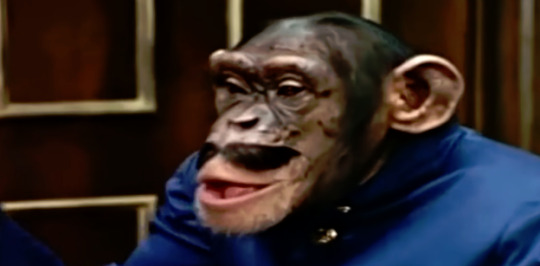
His driver and chief minion is Creto (a play on “cretin” and a parody of the Green Hornet’s partner Kato)

The other member of CHUMP most often seen is the Duchess
Other members of CHUMP are…

Ali Assa Seen (whose last name is a play on “assassin”)
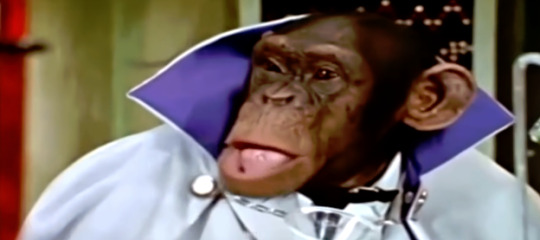
Dr. Strangemind (a parody of Dr. Strangelove), CHUMP’s resident Mad Scientist who sounds a bit like Bela Lugosi

The Dragon Lady

…and Wang Fu
Surprisingly neither Wang Fu, the Dragon Woman, nor Ali Assa Seen were played very racist (especially for the 60s!), though Assa Seen lived in the desert and rode a camel and Dragon Woman was often using an abacus (I would also remark on Wang Fu often eating with chopsticks if it wasn’t for the fact that the chimp playing him actually ate with the damn things!)
Like Get Smart!, the show played the genre for laughs (as if having everyone being portrayed by chimpanzees wasn’t enough of a clue). But unlike its predecessor, there’s no way the plots could ever be played straight!

Between adventures (or in the middle if it was an adventure that lasted the entire episode), the show aired a song by the Evolution Revolution, introduced by talk show host Ed Simeon (who spoke like legendary variety show host Ed Sullivan)
The series lasted one season (since it was a Saturday morning series), but ran in reruns for a second.
As always, if anyone would like to see an episode reviewed, let me know!
1 note
·
View note
Text

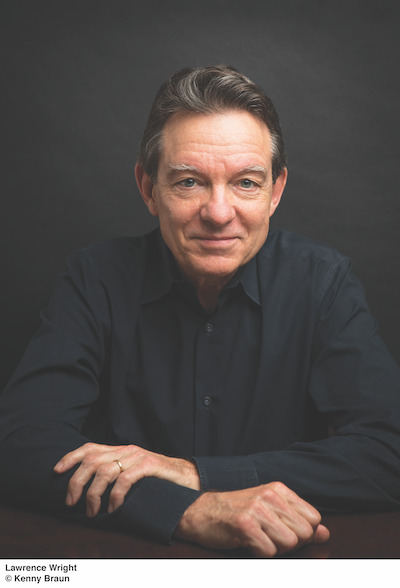
From: Daniel Kusner
Subject: Lawrence wright
Date: September 7, 2015 at 1:29:18 PM CDT
To: "Kusner, Daniel" [email protected]
You could use this: "Austin is already at the center of the bicycling culture, with flatlands on one side and hills on the other, and great weather for cycling. All we need is more bikeways to make it the perfect place for bikes to rule."
Sent from my iPhone
On Sep 7, 2015, at 1:10 PM, Kusner, Daniel [email protected] wrote:

Next Thursday, author Lawrence Wright ("Going Clear: Scientology, Hollywood, and the Prison of Belief.") is coming to Dallas for a reading and signing to promote his newest, “God Save Texas: A Journey Into the Soul of the Lone Star State ” which Knopf releases on April 17.
In Chapter 7, “Big D,” Wright recalls having dinner with Robert Wilonsky. That same chapter, Wright says, “The Dallas Morning News, the most important paper in the state and one of the leading papers in the county."
PDF — 512 CYCOLOGY
PDF new yorker — 1988


Can God Save Texas? A Film God Like Richard Linklater Might Help
One of Texas film's greatest voices speaks on the "cruelty" of the criminal justice system in a new HBO docuseries.
Eva Raggio
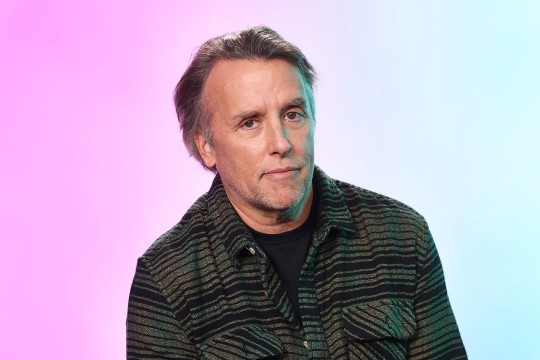
Film director Richard Linklater takes a look at the inhumanity of Texas prisons. Mat Hayward/Getty Images for IMDbGod Save Texas, a trilogy of documentaries that debuted Feb. 27 on Max, examines some of the state’s deeply rooted issues. Based on the book God Save Texas: A Journey into the Soul of the Lone Star State by Lawrence Wright, the limited series was made in three parts, each by a different Texas director.
The first, “Hometown Prison,” was directed by Richard Linklater; the second, “The Price of Oil,” by Alex Stapleton; and the third, “La Frontera,” by Ilana Sosa.
Linklater has produced a widely varied body of work, including the highly stylized intellectual favorite Waking Life, the coming-of-age comedy and stoner cult classic Dazed and Confused and indie hits such as School of Rock and Bernie.
Cinephiles are perhaps most sincerely attached to his naturalist masterpieces on time, such as Boyhood — which followed its characters through scenes that took place over 12 years and earned Patricia Arquette a Best Supporting Actress Oscar— and the Before trilogy, in which he surprised viewers with out-of-the-blue sequels, completing a love story through near-voyeuristic glimpses of a couple (played by Julie Delpy and Ethan Hawke) across cities and decades.
We spoke to Linklater via Zoom from Paris, where he's working on a film that’ll keep him away from his adopted hometown of Austin’s SXSW festival — an event he’s hardly missed in two decades. It's nighttime in the City of Lights, and he has Woody Allen's Midnight in Paris and much more on his mind.
For the Austin-based director, dealing with real subjects (including his own mother, Diane Margaret Linklater, a former professor and advocate for inmates) in God Save Texas prompted a different form of investment into his film’s characters.
“I'm always close to my characters, even if I've kind of created them, written them,” Linklater says. “But there's a real actor there. There's a real person you're working with. So in this case, you're working with real people, you're getting their own personal stories. On one hand, it didn't feel that different. I want to have an affection and an understanding for people, but it's personal: It's their lives, it's my life, it's my mom. It couldn't help but be personal. And you're asking others to tell very personal, sometimes painful stories in their own lives.
"So yeah, it's a big ask. But I think in a way, they trusted me because I was local and maybe they knew it was personal for me, but I feel close to every story. You're just trying to tell in the way you feel. So it felt right.”
Intercut with scenes from protests and stories of death row inmates, the film sees Linklater returning to Huntsville, a city 70 miles north of Houston that has the most active death row prison in the U.S. Viewers can practically smell the grease off the small-town diner menus as Linklater reflects with his subjects (many of them his old classmates), on how his hometown’s prison industry grew so wildly out of control — at least tenfold, from 10 prisons to 114 — in the past few decades, and uncovers the inhumanity of inmates' living conditions.
The auteur filmmaker is a proud Texan whose roots creep up in his work. And he maintains the love of home while decrying its systemic failures.
“You're catching me on the wrong night,” he says of his feelings for Texas. “We're executing an innocent guy tomorrow in Huntsville, Ivan Cantu, who's being put to death without … I mean, I can't believe it. I'm just stunned and really depressed, kind of a little desperate. We've been doing all we can. It's just like, gosh, the new normal. OK, we can kill innocent people. The next administration, maybe we can start … There's talk of camps. What's next? What can we put up with?
"So on the one hand, I love Texas and I love the people, but I really do feel a disconnect with the cruelty. ‘Cause I know Texans aren't cruel by and large, but I think our government policies are extremely cruel, and this executing an innocent person is about the top of the list. So I don't know. It's times like this you feel pretty bad.”
Linklater says he didn’t stumble into any major production roadblocks, but taking on a project that required such a deeply personal investment was a matter of facing his past to expose a haunting present.
“Everyone was so giving and open and kind; I think it was just me getting over just wanting to go there myself,” he says. “This film concerns my mom. It's a lot of my own past. I was asking people to tell their stories. So it was just deciding to do it, I think. And I mean, these issues about criminal justice and the death penalty, these have swum around in my head all these years.
“It was kind of cathartic and satisfying to find a home for some of these feelings. And my summation is fairly simple, really. I think after all of it, it's just like, yeah, the death penalty really does hurt a lot of … there's a lot of collateral damage to so many people and these state employees who have to be dragged through it. So to me, it's just kind of unnecessary trauma induced on innocent people.”
The film focuses on the trauma on both sides of the bars, from convicted inmates (many of whom proclaim their innocence) to state workers whose daily duties include strapping the bodies of death row prisoners onto and off the gurney. His opinions on the death penalty haven’t necessarily changed, but Linklater is more adamant than ever that the system predatorily exploits human error for profit, as we idly cede our rights to a state where punishment far too often exceeds the crime.
“My conclusion is don't do it,” he says. “I'm not a full-blown prison abolitionist, but I'm heading that way only in that — I don't mean let murderers out on the streets. I just think we could approach in a much more humane … the way we systematically create all this pain. We could systematically create more worthwhile treatment. I mean, face it, the prisons are full of people in on — it's mental health and drug addiction. If you treated those things, there goes 90% of the population right there.
“And then keep really the psychopaths, the murderers, serial sexual assaulters. I think we all have a vested interest in keeping certain people isolated from the general population, but people who made a bad mistake or something, I can't explain a tenfold increase. Crime is down everywhere. That's just the trend. Violent crime, everything's down. So why is our prison gone up 10 times in the last 40 years? I don't know. Things we have to ask ourselves. ... We should be investing in people, not just punishing them.”
For God Save Texas, he says, the trio of directors hardly compared pre-production notes beforehand.
“We were sort of siloed in our own projects,” Linklater says. “We knew what everybody was doing, but I guess I went first and set a certain tone, maybe with the personal. When we started I don't think we really had a full plan. I was like, ‘Larry [Wright, who also executive-produced the series], so are we gonna go to Huntsville?’ And we just felt our way through it.”
Before and After the Before Trilogy
With his cinematic oeuvre falling into an array of styles and genres, Linklater doesn't give much thought to his overarching body of work, preferring to hyper-focus on each film. He says he hasn’t even pondered the uniting thread woven across his projects.
“I don't know. I'm always telling kind of character-based work,” he says. “The concept is never bigger than the characters. They're pretty far away from superhero or anything like that.”
While his films are often of the deeply felt variety that persist on viewers’ minds long after the credits roll, he also adds: “Or laugh. I've made comedies, a little bit of everything. I don't know, just always trying to express myself in my own relation to the particular story or subject.”
Least of all does he consider his legacy, or his writing living on through the ages.
“Boy, I can tell you, I never think I'll live on for generations,” he says with a laugh. “I'm really focused on what I'm doing like right now, making this movie. So that's really all you can do.”
He concedes that he's mildly aware the Before movies have prompted a niche form of tourism, made up of fans who visit the first film’s Vienna locations, for example. But he hasn’t been to Vienna in about 15 years and assumes the interest has dwindled. (It hasn’t; visit the record shop where Jesse and Celine share a charged exchange of awkward missed glances in a listening booth, and see for yourself.) He laughs at our joke suggesting the Austrian capital should’ve given him a key to the city.
Nonetheless, as he finds himself in Paris, Linklater has learned that the bookstore featured in the second installment, Before Sunset, is still a bit of a treasure for fans following the Before map.
In Huntsville, he’s known as “Rick,” a former football player for the state’s highest-ranking team. As a young adult, he self-taught filmmaking on a Super 8 camera. Before long, Rick went on to receive Academy Award nominations, be named one of Time’s most influential people in the world in 2015, and become an advocate for filmmaking, and particularly Texas filmmaking, as co-founder of the Austin Film Society.
He's a successful independent filmmaker whose movies have made a crater-sized mark on pop culture, so one would assume Linklater finds himself in a privileged spot coveted by any artist looking to make an impact without the fine print double-dealings.
“Successful? I don't know. It doesn't feel that way all the time when you're working on a real low budget and you don't have enough time or money to make your movie,” he says. “But maybe that's it. I've just never cared about, I guess, the money or that result. I've really just focused on the next story I'm trying to tell and kind of avoided a certain kind of careerist trappings. Maybe staying in Texas probably was a good thing for my mental health.”
It hasn’t been hard, he says, to sustain that balance, keeping a sense of artistic autonomy while avoiding industry money grabs and other Hollywood pitfalls.
“You say no a lot," he says. "I think you define yourself a lot in this world — it sounds corny or maybe you heard it: It's like you kind of define yourself by what you don't do. Just because you have opportunities doesn't mean you have to do it. So the things I've turned down, the things I've not wanted to do that I could have, kind of defined you. It's like, yeah, no, I'm really focused over here. I know that's more money and that [I’ll] get to work with some big star, but I don't really want to do that. I want to tell [my stories]. So just follow your own muse.”
During the pandemic, his kids became an elite audience in a Linklater-selected, at-home film festival. He was glad they’d grown past the animated children’s movie days (“I could not wait to get out of kid movies. We did that pretty quick. I'm a filmmaker, I was showing them stuff, but yeah, I could not wait until they were starting to ask me more about movies”) and into more sophisticated cinematic territory.
“Say what you will, the pandemic was terrible, but we watched a movie every night,” he says. “These teenagers [would ask], ‘What movie are you going to watch now? Let's do the French New Wave, or let's watch films from Brazil.’ It was like my own little one-year curation, my own little film society in the family.”
For all the brilliant dialogue that mark his own films, the uniting thread he never thinks about, Linklater isn’t surprised that the most quoted line from his movies was famously ad-libbed by Matthew McConaughey in Dazed and Confused.
“He wasn't even scheduled to work that night,” he says of his fellow Texan. “We worked up that scene and he just threw in that 'All right, all right, all right’ — he said that as he was driving in, and I thought it was really funny."
Linklater remembers that "within a day or two after that," the expression became a popular saying among the film crew.
"I noticed a key grip say, ‘OK, we're laying some dolly track over there. Let's go do that. And [he] goes, ‘All right, all right, all right, all right.' He was already repeating it," Linklater says. " And on one hand, I'm not surprised. I mean, of course you're surprised when you see a T-shirt with it or something like that, that's crazy.
“Matthew … he's earned it, I guess.”
click to enlarge
A new HBO docuseries finds Austin director Richard Linklater visiting his hometown to examine a universal issue: the ever-expanding prison industry.
Max/Richard Linklater
newyorker.com
In “Hometown Prison,” Richard Linklater Looks at Life on Both Sides of the Wall
Richard Brody
8–11 minutes
With little fanfare, a complex and far-reaching personal documentary by Richard Linklater, “Hometown Prison,” dropped last week on the streaming service Max. It’s one of a trio of excellent films made under the rubric “God Save Texas,” based on the book by Lawrence Wright, of this publication—all of which consider the state’s history and politics in the light of the filmmakers’ own lives and families. The second film, “The Price of Oil,” directed by the seventh-generation Texan Alex Stapleton, traces the economic racism on which the state’s oil industry was built, as manifested in its disproportionate pollution of predominantly Black neighborhoods, including her family’s own. The third, “La Frontera,” by Iliana Sosa, who was born in El Paso to a family of Mexican descent, considers the historical unity of that city with its Mexican neighbor, Ciudad Ju��rez, and the enduring burdens imposed on Mexican Americans by white supremacy and the resulting militarized border. It takes nothing away from these latter films—exemplary blends of journalistic investigation, historical analysis, and intimate experience—to call particular attention to the power and the aesthetic range of Linklater’s documentary, which combines a narrow focus on a single institution with a conjoined exploration of the director’s life and his œuvre.
“Hometown Prison” is about Huntsville, Texas, where Linklater lived from 1970 (the year he turned ten) to 1981. He has previously explored his boyhood experiences there in such films as “Dazed and Confused,” “Everybody Wants Some!!,” and, of course, “Boyhood.” However, “Hometown Prison” concentrates on one oppressive peculiarity of the town: there’s a large prison in the middle of it, in plain view of much of daily life there, and a vast network of prisons spread throughout the town and its vicinity. The prison system is the town’s main employer. Texas, as Linklater relates, has the most incarcerated people of any state; it also executes more people than any other state, and those executions take place in Huntsville. Prisons, in other words, are a ubiquitous presence in Huntsville’s landscape, and yet, Linklater says, “At some point, you don’t really even see it.” In “Hometown Prison,” he attempts to see—and to give voice to silences on the subject, in his life and his work, that he has until now not managed to break.
It wasn’t for lack of trying. Though Linklater credits Wright (one of the filmmaker’s longtime friends, who appears on camera, as he does in the other two films in the series) with the suggestion to make “Hometown Prison,” the work is anchored in two incomplete projects of Linklater’s. The first, a drama that he’d hoped to make in 2002, was about two high-school football players who, a year after graduation, end up on opposite sides of the prison walls. The second was to have been made from documentary footage that he shot in 2003, of protests outside those walls, when an inmate named Delma Banks, Jr., was about to be executed despite abundant evidence of his innocence. Linklater couldn’t find funding for the drama and never did anything with the footage—plentiful amounts of which appear in “Hometown Prison.”
Here, Linklater breaks silence in the most direct and literal way—by speaking. He delivers a copious and confessional voice-over, complete with reminiscences, observations distilled from research, and candid assertions (as when he declares capital punishment “barbaric”). He also appears on camera, in conversation with Huntsville residents whose lives intersect with his and with the town’s carceral economy. Linklater’s recollections of his late mother, Diane (included by way of a talk with one of her friends), involve her activism on behalf of incarcerated people released into town with no support. One of the most revealing exchanges is with Elroy Thomas, a manager at a Huntsville bus depot, who estimates that, in his thirty years on the job, he has sold one-way tickets out of town to hundreds of thousands of newly released prisoners—and adds that, in the process, he has become acutely sensitive to their frame of mind and the extent of the preparedness to return to private life. It’s shocking to see a line of former inmates walking casually away from prison with no clear destination down the closed-off vista of a leafy street. “They don’t offer no rehabilitation,” one of them comments. “If you’re trying to get right, you need to do it on your own.”
Among the ex-prisoners with whom Linklater speaks is Dale Enderlin, one of his former baseball teammates from Huntsville’s Sam Houston State University, where Linklater’s mother taught. (The team was later the subject of “Everybody Wants Some!!”) Enderlin spent thirty-nine months in prison for white-collar crimes, and his main observation from his time there is how routinely young, nonwhite people are railroaded into confessions for crimes that they didn’t commit. A civil-rights lawyer, Bill Habern, who arrived in town as a public defender in the nineteen-seventies, dated Linklater’s mother, and remained a family friend, says, “I came to Huntsville and I thought I’d landed in Mississippi twenty years before.” He shows Linklater bullet holes in his home, estimating that there are twelve to fifteen. Ed Owens, the first Black warden of a Huntsville prison, says that he experienced far more racism owing to his work inside the walls than to anything in ordinary town life; during protests involving one execution, the Ku Klux Klan demonstrated outside his house.
A prison in Huntsville, Texas.
The attitudes of many Sam Houston students interviewed in the documentary belie the centrality of prison to life in Huntsville. Despite being on a campus with clear views of uniformed prison guards, inmates being released, and demonstrations against capital punishment, they claim not to pay much attention to the facility’s proximity. “I’ve never given too much thought to it, until you hear the siren go off,” one student says. Another notes, “It seems that everyone’s aware of it, but no one wants to talk about it”; a third adds, “I’ve never heard no professor talk about it.” Linklater affirms that the “disconnect” is “kind of a Huntsville tradition.” One of his former high-school football teammates says that, even now, the prison “doesn’t even come to my consciousness.”
Of course, there are some in Huntsville for whom the prison system looms large. Linklater interviews many of them: the formerly incarcerated, and family members of the incarcerated; a local historian and activist who seeks to change the town’s civic life and is well aware of being despised for it; former corrections officials, whose firsthand experiences witnessing or even participating in executions has caused them to reject the practice; and a current one who finds the rigors of the carceral system hard to bear. Moreover, Linklater recalls one of his stepfathers, a prison guard (whom he dramatized in “Boyhood”) whom the stresses of the prison system psychologically warped and darkened.
Just a few minutes into “Hometown Prison,” there’s a shot of a restaurant across the road from a barbed-wire-fenced prison unit, which has a cheerful sign announcing “Sunday: Kids Eat Free.” I was reminded of another movie in current release, Jonathan Glazer’s historical drama “The Zone of Interest,” which is set outside the walls of Auschwitz, in a house where the camp’s commandant, Rudolf Höss; his wife, Hedwig; and their three young children live, apparently pretending, to the fullest of their capacities, that their lives are normal. Unlike Glazer, Linklater doesn’t merely observe Huntsville residents’ lives alongside prison but also hears from them. He displays deep and sincere curiosity about what people involved in a cruel system—or even merely living in view of one—say, think, and feel. He probes the psychology of their efforts to keep prison from their minds and also considers the ideologies behind the prevalence of incarceration and the death penalty in Texas—including racism, class-based inequity, an enduring myth of frontier justice, brazen demagogy, and a form of Christian fundamentalism that emphasizes strictness rather than mercy—as well as the practical policies that sustain the carceral system there, including the economic motives of contracts for businesses and employment for residents.
“Hometown Prison,” with its free and hybrid form, empathetically and indignantly brings suppressed agonies to light. It does more, too. Linklater looks deeply at the town’s self-gaslighting, at how it’s maintained and who maintains it, and to what ends. The film is a fervent and trenchant work of political psychology, living history, investigative journalism, and anguished confession.
With humor and the biting insight of a native, the Pulitzer Prize-winning author Lawrence explores the history, culture, and politics of Texas, while holding the stereotypes up for rigorous scrutiny.
God Save Texas (Penguin, 2018) is a journey through the most controversial state in America. It is a red state in the heart of Trumpland that hasn’t elected a Democrat to a statewide office in more than twenty years; but it is also a state in which minorities already form a majority (including the largest number of Muslims). The cities are blue and among the most diverse in the nation. Oil is still king but Texas now leads California in technology exports. The Texas economic model of low taxes and minimal regulation has produced extraordinary growth but also striking income disparities. Texas looks a lot like the America that Donald Trump wants to create. And Wright’s profound portrait of the state not only reflects our country back as it is, but as it was and as it might be.
Lawrence Wright is a staff writer for The New Yorker and the author of nine previous books of nonfiction, including In the New World, Remembering Satan, The Looming Tower, Going Clear, Thirteen Days in September, and The Terror Years,and one novel, God’s Favorite. His books have received many prizes and honors, including a Pulitzer Prize for The Looming Tower. He is also a playwright and screenwriter. He is a longtime resident of Austin.
A light reception will precede the event beginning at 5:30 pm, with the lecture starting at 6:00 pm. Parking will be available on the SMU campus. FREE passes will be emailed to registered guests before the event. Seating is limited, and not guaranteed.
Wright's publication of the same title will be available for purchase and signing after the event.
TEACHERS ONLY -- Please sign in at the registration table to receive continuing education credit.
Co-sponsored with SMU's Clements Center for Southwest Studies, Center for Presidential History, the John Tower Center for Political Studies, the Clements Department of History, the Dedman College Interdisiplinary Institute, and Dedman College of Humanities and Sciences.
-- Southern Methodist University
0 notes